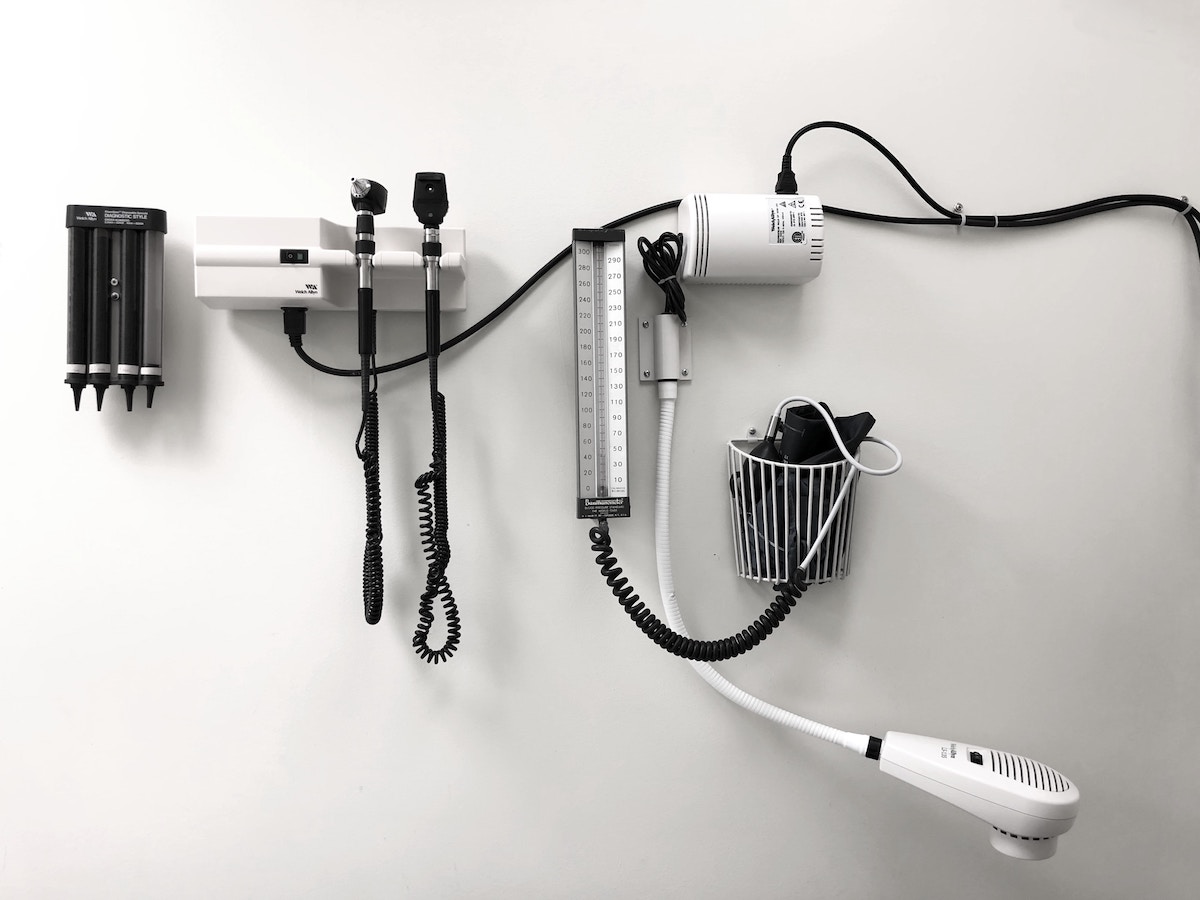
It is widely known that medical equipment plays a critical role in healthcare. The quality and performance of these tools, from instruments to implants, can greatly impact the well-being of patients.
However, many people may not be aware of the contribution made by plastic resins in molding these health solutions.
Plastic resins possess a range of properties that make them highly suitable for varied applications. Their versatility allows them to be engineered to exhibit strength, flexibility, lightness, and biocompatibility – all essential qualities for medical equipment.
In this blog, we will delve into how the utilization of plastic resins in healthcare can enhance medical equipment and contribute to advancements.
1. Compatibility With Sterilization Processes
A key requirement for any medical device is its ability to withstand sterilization processes without degradation or loss of functionality. Plastic resins have been proven to exhibit compatibility with sterilization methods such as gamma radiation, ethylene oxide (EtO) gas, and steam autoclaving.
The inherent chemical stability of plastic resins enables them to maintain their integrity after repeated exposure to high temperatures and harsh chemicals during sterilization procedures. This aspect is crucial as it ensures that medical devices remain safe and effective for use by healthcare professionals.
2. Biocompatibility
Ensuring biocompatibility is crucial when designing equipment like implants or prosthetics. Plastic resins offer a solution because they can mimic tissue properties while maintaining their structural integrity.
Manufacturers carefully select the plastic resin formula to guarantee that the material is safe and doesn’t cause any reactions when it interacts with living cells or tissues in the body. This ensures a near-seamless integration of the device with the biological environment without any harm or rejection from the body’s system.
3. Design Flexibility
Compared to traditional materials used in medical device manufacturing, like metals or ceramics, plastic resins provide immense design flexibility. This versatility allows designers and engineers to create complex designs and shapes without compromising functionality.
Advanced molding techniques, such as injection molding, enable the production of accurate medical equipment. This is particularly important for devices that require specific tolerances or customized geometries tailored specifically to patient needs.
4. Lightweight yet Durable
Medical professionals often need to handle multiple devices during procedures or treatments, so weight plays a role in material selection. Plastic resins are known for being lightweight while still offering strength.
The lightness and durability of plastic resins make them an excellent choice for instruments, wearable devices, and equipment used in physically demanding applications. Their lightweight properties help reduce fatigue for healthcare providers while ensuring the long-term reliability of the equipment.
5. Radiolucency
Radiologic imaging plays a role in diagnosing conditions and monitoring treatment progress. When it comes to equipment used during imaging procedures like X-rays or magnetic resonance imaging (MRI), radiolucency becomes essential.
Plastic resins can be specially formulated to have attenuation properties, which allow them to be transparent under X-ray or MRI scans. By incorporating plastic resins into the manufacturing process, medical professionals gain visibility of the examined area, leading to accurate diagnoses.
6. Cost-Effectiveness
In addition to their advantages, plastic resins offer a number of benefits compared to traditional materials such as metals or glass. The production processes involved in molding plastic resins generally require less time and fewer resources than those associated with materials.
Furthermore, due to their abundance and ease of fabrication, plastic resins are usually more affordable than other options without compromising on quality or performance standards.
The use of cost-effective methods also helps make essential medical equipment more accessible as it reduces the expenses involved in manufacturing. This consideration holds immense significance when it comes to making healthcare affordable.
7. Sustainability
It’s worth noting that plastic resins provide an eco-friendly alternative as sustainability gains importance across various industries, including healthcare. Many resin compounds can be recycled to reduce waste and minimize environmental impact.
In recent times, there have been many developments in recyclable plastics specifically designed for healthcare applications within the medical industry. These materials possess properties that facilitate recycling without compromising their biocompatible characteristics.
Conclusion
Plastic resins play a major role in improving medical equipment by ensuring compatibility with sterilization processes, biocompatibility with patients’ bodies, flexibility in design, lightweight yet durable construction, radiolucency for imaging purposes, cost-effectiveness in production, and environmental sustainability.
As advancements continue to be made in technology, selecting the right materials becomes even more crucial for manufacturing high-performance devices that prioritize patient care and well-being. By harnessing the advantages offered by plastic resins, manufacturers can continue to shape health solutions that save lives on a daily basis.
Article and permission to publish here provided by John Keenan. Originally written for Supply Chain Game Changer and published on September 15, 2023.
Cover photo by Abby Anaday on Unsplash
- SEO Powered Content & PR Distribution. Get Amplified Today.
- PlatoData.Network Vertical Generative Ai. Empower Yourself. Access Here.
- PlatoAiStream. Web3 Intelligence. Knowledge Amplified. Access Here.
- PlatoESG. Automotive / EVs, Carbon, CleanTech, Energy, Environment, Solar, Waste Management. Access Here.
- PlatoHealth. Biotech and Clinical Trials Intelligence. Access Here.
- ChartPrime. Elevate your Trading Game with ChartPrime. Access Here.
- BlockOffsets. Modernizing Environmental Offset Ownership. Access Here.
- Source: https://supplychaingamechanger.com/molding-health-solutions-how-plastic-resins-improve-medical-equipment/
- :is
- :not
- 15%
- 2023
- a
- ability
- abundance
- accessible
- accurate
- across
- addition
- advancements
- advantages
- affordable
- After
- All
- allow
- allows
- also
- alternative
- an
- and
- any
- applications
- ARE
- AREA
- AS
- aspect
- associated
- aware
- basis
- BE
- because
- becomes
- been
- being
- benefits
- Blog
- bodies
- body
- by
- CAN
- care
- carefully
- Cause
- Cells
- chain
- Changer
- characteristics
- chemical
- chemicals
- choice
- comes
- compared
- compatibility
- complex
- compromising
- conditions
- consideration
- construction
- continue
- contribute
- contribution
- cost-effective
- create
- critical
- crucial
- customized
- daily
- delve
- demanding
- Design
- designed
- designers
- designing
- designs
- developments
- device
- Devices
- Doesn’t
- due
- durability
- during
- ease
- Eco-friendly
- Effective
- enable
- enables
- Engineers
- enhance
- ensures
- ensuring
- Environment
- environmental
- Environmental Sustainability
- equipment
- essential
- Ether (ETH)
- Even
- excellent
- exhibit
- expenses
- Exposure
- facilitate
- fatigue
- fewer
- Flexibility
- For
- formula
- from
- functionality
- Gain
- Gains
- game
- game-changer
- GAS
- generally
- glass
- greatly
- guarantee
- handle
- harm
- Harnessing
- Have
- Health
- healthcare
- help
- helps
- here
- High
- high-performance
- highly
- holds
- How
- HTTPS
- Imaging
- immense
- Impact
- importance
- important
- improve
- improving
- in
- Including
- incorporating
- industries
- industry
- inherent
- instruments
- integration
- integrity
- interacts
- into
- involved
- IT
- ITS
- John
- jpg
- Key
- known
- leading
- less
- lightweight
- like
- Lives
- living
- long-term
- loss
- made
- maintain
- maintaining
- major
- make
- Making
- Manufacturers
- manufacturing
- many
- many people
- material
- materials
- May..
- medical
- medical device
- medical devices
- medical equipment
- Metals
- methods
- minimize
- monitoring
- more
- MRI
- multiple
- Need
- needs
- noting
- number
- of
- offer
- offered
- offering
- often
- on
- Options
- or
- originally
- Other
- particularly
- patient
- patient care
- patients
- People
- performance
- permission
- photo
- Physically
- plastic
- plastics
- plato
- Plato Data Intelligence
- PlatoData
- Play
- plays
- possess
- Prioritize
- procedures
- process
- processes
- Production
- professionals
- Progress
- properties
- Prosthetics
- proven
- provide
- provided
- providers
- publish
- published
- purposes
- qualities
- quality
- Radiation
- range
- reactions
- recent
- recycling
- reduce
- reduces
- reliability
- remain
- repeated
- require
- requirement
- Resin
- resonance
- Resources
- right
- Role
- safe
- Save
- scans
- selecting
- selection
- September
- Shape
- shapes
- significance
- So
- solution
- Solutions
- specially
- specific
- specifically
- Stability
- standards
- Steam
- Still
- strength
- structural
- such
- suitable
- supply
- supply chain
- Sustainability
- system
- tailored
- techniques
- Technology
- than
- that
- The
- their
- Them
- There.
- These
- they
- this
- those
- time
- times
- tissue
- tissues
- to
- tools
- traditional
- transparent
- treatment
- treatments
- under
- use
- used
- usually
- various
- versatility
- visibility
- Waste
- we
- wearable
- wearable devices
- weight
- when
- which
- while
- widely
- will
- with
- within
- without
- worth
- written
- x-ray
- yet
- zephyrnet












